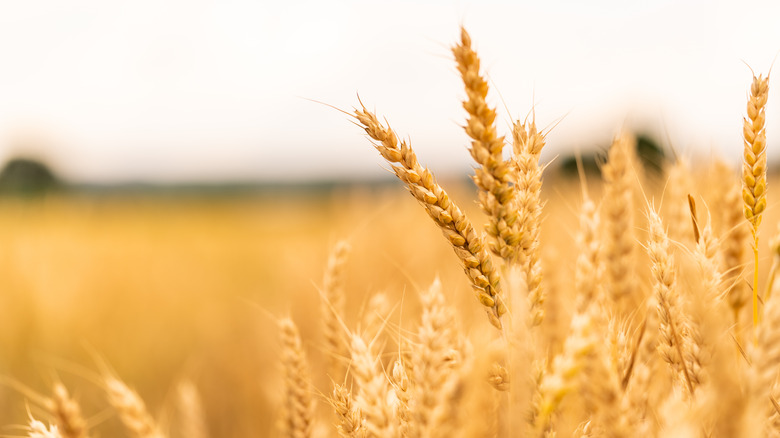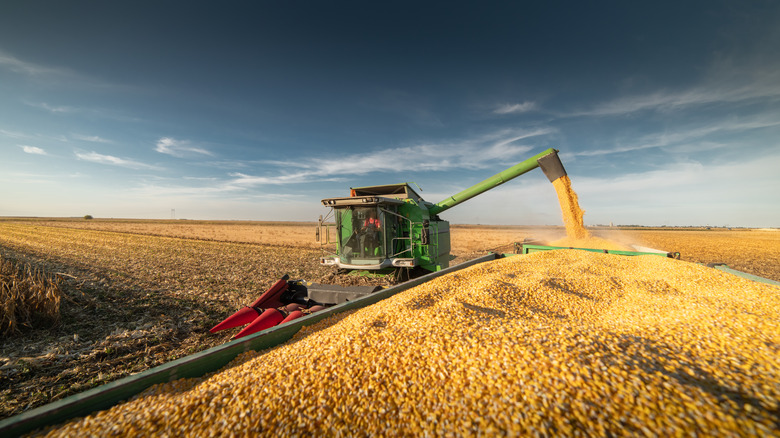How The War On Ukraine Will Affect The U.S. Food Supply
When Russia began its invasion of Ukraine, The Counter reported that "bread and vegetable oil prices seem very likely to rise." This prediction, in addition to the inflation that many shoppers have already been experiencing, has begun to come true. While the Midwest has the reputation of being America's breadbasket, Russia and Ukraine export 30% of the world's wheat, explains a video by Fox News. The countries also export 20% of the global corn supply and 80% of the sunflower oil. There is a shortage of these products — and a rise in their price — while the countries are at war. Wheat alone has become 40% more expensive in the last week.
These shortages affect more than the number of bags of flour on American shelves. Rising costs of wheat, corn, and sunflower oil will also impact goods like processed foods and meat, according to AP News. Ukraine produces a significant portion of Europe's livestock feed, for example, so meats produced on the continent will grow more expensive for consumers as farmers attempt to offset the costs. Fox reporters told Americans to expect similar price hikes in the U.S. — though perhaps not as significant as they will be in other parts of the world.
The global food crisis
While Russia's war on Ukraine will impact American food markets, it may have a greater effect on other countries that depend on the regions as their breadbasket. AP News explains that millions of people living in poverty, including those in countries such as Egypt, rely on government subsidies for food items made with Ukrainian wheat. The prolonged disruption in food production could threaten their supply of affordable food. Nigeria is bracing for price hikes on the wheat it sources from Russia. China, too, will contend with changes in food security as Ukraine took over the U.S.' role of being its biggest corn supplier in 2021.
This has prompted some discussion about "food sovereignty." Per Food Navigator, Julien Denormandie, France's Minister for Agriculture and Food, said after a call with other European agricultural ministers that "the terrible events in Ukraine cast a tragic light on the need for us to strengthen our food sovereignty so as to ensure food security in times of crisis, both within the European Union and around the world." Tope Ogun of the Nigerian flour milling company Honeywell Flour Mills made a similar observation to AP News, saying it's time for the country to look beyond Russia for its wheat supply. These remarks suggest that we could soon see a greater insistence on local production as a means to avoid the fallibilities of the global supply chain.

